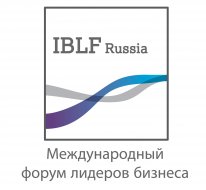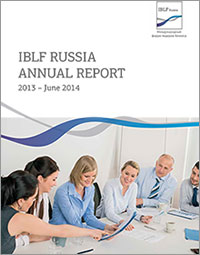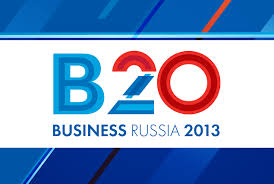
| |

IBLF RUSSIA ANNUAL REPORT
2013 - June 2014
Ñêà÷àòü IBLF_2014_eng.pdf
Letter to G20 Heads of State

From Presidents and CEOs
of companies in the B20 Task Force on Transparency and Anti-corruption
to the G20 Heads of State
2nd September 2013
Dear G20 Heads of State
For us in business, fighting corruption is not just a question of ethics or social responsibility. We know - in some cases from our own experience - that the corrupt actions of just one rogue employee can destroy a company’s corporate reputation and cause untold financial damage. For our management and our shareholders, corruption and its consequences are a massive drain on our resources. Finally corruption, especially in some of our key markets, constrains our appetite for investment. In short, corruption has a detrimental impact on growth - for business and for society.
On the eve of the Los Cabos Summit in 2012, the companies participating in the B20 Task Force on Transparency and Anti-corruption wrote to you to express their belief that business has a critical role to play in working with governments to reduce corruption.
This year, within our Task Force, we set ourselves the goal to move “from declaration to action”. In the attached recommendations, you can see what we agreed. Here are a few of the major points which we would like to draw to your attention:
· Creating an enabling environment:
We suggest more regular and in-depth exchanges between business and government, at both a national and G20 level, on practical ways in which to extend best practices in combating corruption to more companies, including SMEs, state-run companies and even government agencies. In such meetings we would work together to create a level playing field and a more attractive environment for investment - for example, how to incentivize business to self-report, how to clean up public procurement, and how to raise the standards of compliance in companies’ supply chains.
· Promoting Collective Action:
We recommend - and will put into action - the establishment of a Collective Action Hub to stimulate the exchange of best practices and experience by companies, governments and civil society working together to oppose corruption. The Hub, to be managed by the Basel Institute for Governance in partnership with the UN Global Compact, and funded by business, will go live by the time
· Bringing new approaches to reducing corruption to each G20 country:
In order to have impact, the new approaches to fighting corruption need to be implemented by business and government in each G20 country. Accordingly, we suggest setting up or supporting Anti-corruption Centres of Excellence in each country. These would promote anti-corruption awareness in the business community, provide training in the latest compliance techniques, and act as a neutral platform for Collective Action initiatives. We recognise that each country will need to move forward on this at its own pace but we hope that national business and political leaders in each country will join forces with us by helping to make this happen.
For the future, we would welcome more participation from the top companies in the emerging markets. After all, they are leading the world’s economic development and should be part of our work on anti-corruption. We ask you to encourage the leaders of these companies to participate in the work of the B20.
Please also consider the long-term nature of the corruption challenge. We hope that the G20 Anti-Corruption Working Group will be given a mandate that extends well beyond its current two year programme. For our part, our companies are committed to working with the G20 on this issue for as long as is necessary.
The recommendations and the spirit in which we present them to you suggest that it may indeed be possible to move “from declaration to action”. The next months will determine whether our recommendations are to remain at a rhetorical level, or whether we, the leaders of some of the major companies of the G20, and you, the heads of our governments, really have the will and the determination to engender a fundamental change of behaviour in our countries and markets.
Yours Sincerely,
|
Andrei Bougrov Chair, B20 Task Force on Transparency and Anti-corruption Vice President, Interros |
Futhi Mtoba
Past Chairman, Deloitte Southern |
|
Hans-Paul Buerkner Chairman The
|
Richard Fenning CEO Control Risks
|
|
Steve Almond Global Chairman Deloitte Touche Tohmatsu Limited
|
John C. Fast Joint Managing Director Dragoman Pty Ltd |
|
Giuseppe Recchi Chairman of the Board, Eni SpA Co-chair, B20 Task Force on Transparency and Anti-corruption
|
David T. Seaton, Chairman and Chief Executive Officer Fluor Corporation
|
|
Nani Falco-Beccalli President & CEO GE Europe |
Bo Risberg CEO Hilti Corporation
|
|
Michael Andrew Global Chairman KPMG International Arun Nanda Director Mahindra and Mahindra
|
Mohamed H Al-Mady Vice Chairman & CEO Saudi Basic Industries Corporation (SABIC) Joe Kaeser President and Chief Executive Officer Siemens AG |
|
M.V. Shamolin President Sistema JSFC
|
Jean-Bernard Levy Chairman and CEO Thalesg |
|
A.V. Saltaev Director General OOO Ural Locomotives
|
|
This letter and the B20 recommendations are supported by the heads of the following business associations, intergovernmental and non-governmental organizations which participated in the work of the Task Force:
© 2009-2015 IBLF Russia. All rights reserved.

